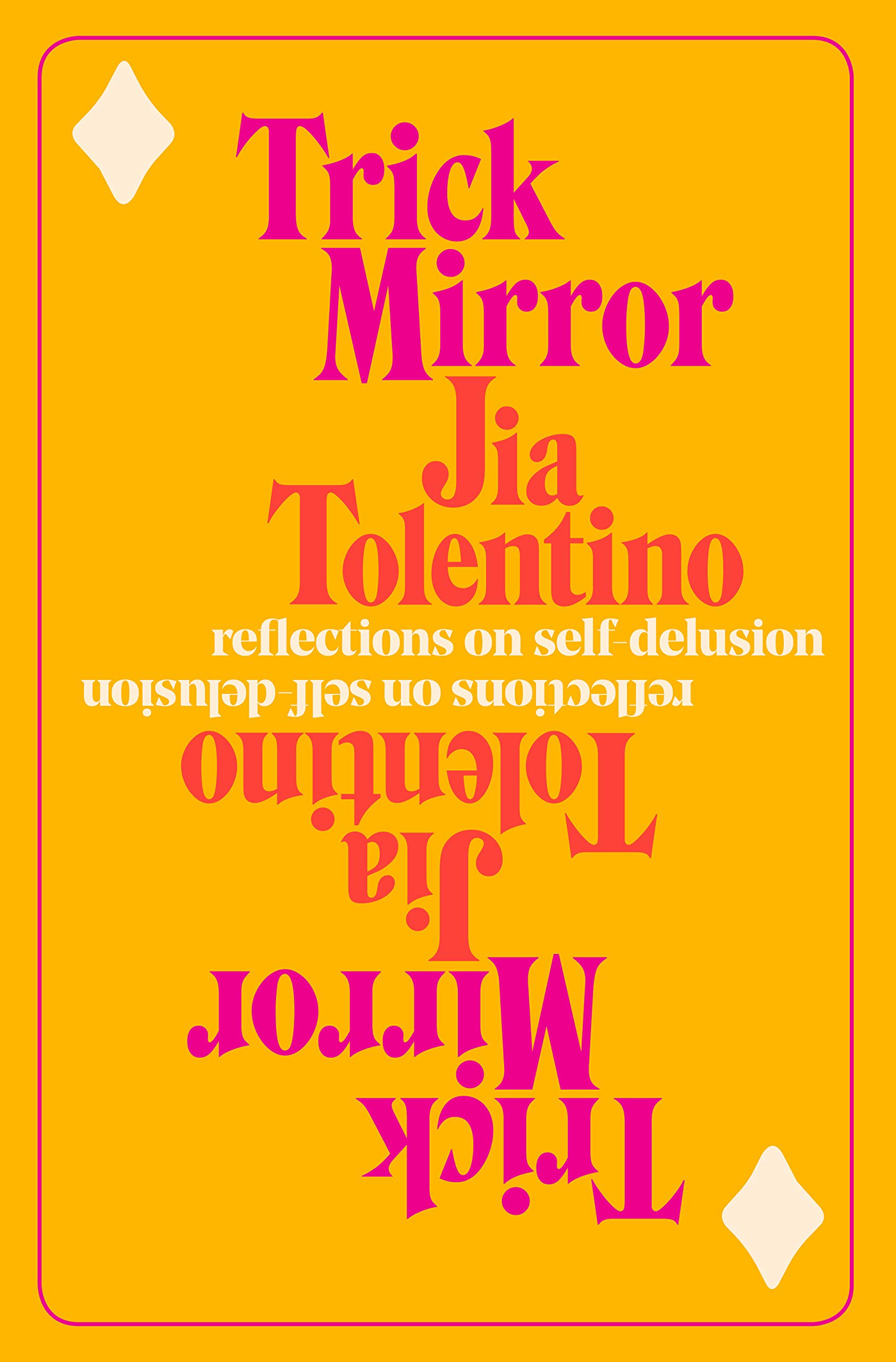Trick Mirror: Reflections on Self-Delusion by Jia Tolentino
/Trick Mirror: Reflections on Self-Delusion
by Jia Tolentino
Random House, 2019
Before there was Facebook, there was MySpace. Before Netflix, there was cable. And before the Internet, there was real life. Before Jia Tolentino was born, her parents moved from the Philippines to Canada and then from Canada to the USA. Raised in Houston, Texas, Tolentino grew up finding solace in the surge of digital spaces taking over every teen and preteen’s life in the early 2000s.
Savoring her own autonomy to craft her own identity online however she’d like, she began using trailblazing website-hosting platforms like Expage and Angelfire to write about her early encounters with Beanie Baby webpages. Years later, Tolentino now writes for The New Yorker while her previous employers include Jezebel and The Hairpin. In nine new essays from her debut collection, Trick Mirror: Reflections on Self-Delusion, Tolentino doesn’t altogether pour out confessionals strictly damning the Internet, nor does she pinpoint where the future of our screen worlds are going. Instead, she thoughtfully—and humorously—offers critical inquiry into why digital spaces have the power to inflict our physical senses offline, without portraying the Internet as this nightmarish entity living under our beds. By concocting a compelling hybrid of the person essay and journalistic reportage, Tolentino gives readers what is, perhaps, the most powerful outcome that reading about the Internet—not just content spawned from it—can extend to us: assessing our own indulgence to be seduced by self-delusion.
In “The I In The Internet,” the first essay featured in the collection, the reader is met with the opening line, “In the beginning the Internet seemed good.” Immediately, Tolentino casts a negative aura around the topic, but not without a bombardment of examples of iconic media mishaps in recent years, backed by—what is a surprising relief—academic theory. This formula for how Tolentino presents information by creating an imaginary brainy, highbrow, Facebook using Frankenstein’s monster, is able to feel engaging without her arguments coming off as inaccessible if readers become too distanced from potentially unfamiliar literature. On one page you can find the term “Craigslist orgy” and on the next you’ll find Tolentino citing research from 1959 by sociologist Erving Goffman.
Throughout, Tolentino emphasizes that the Internet, infinite with information, is able to be structured and manipulated to appear however the helmsman deems fit, including negatively. Thus, users are just as accountable to not solely be reactionary, but should spot the performative quality to the internet as a rhetorical space. Tolentino writes:
Selfhood buckles under the weight of this commercial importance. In physical spaces, there’s a limited audience and time span for every performance. Online, your audience can hypothetically be expanding forever, and the performance never has to end...performance is mostly arrested in the nebulous realm of sentiment, through an unbroken stream of hearts and likes and eyeballs, aggregated to numbers attached to your name.
Above all, Tolentino stresses that going online is voluntary. While the use of likes and hearts is symbolically positive, the content itself could be supportive of negative qualities and/or behaviors. In another essay, “Always Be Optimizing,” Tolentino tackles the capitalistic nature of beauty and “athleisure” industries and, while she notes inclusivity methods are more common by shouting from the hilltops for women to embrace their bodies (which money helps do!) on Instagram or be their own #Girlboss, she doesn’t ask to boycott the attentive products. Rather, she states, “We have hardly tried to imagine what it might look like if our culture could do the opposite—de-escalate the situation, make beauty matter less.”
Every essay in Trick Mirror appears to indicate that, whether Tolentino recounts her dizzying teen realty TV stardom, remembers growing up in Texas amidst a church-going culture she felt displaced from, and more, there remains an intense presence of fragility, nostalgia, and anxiety that permeates the pages. The lucid quality to Tolentino’s writing is consistently endearing throughout because of understanding the construction of her identity taking shape during the Internet’s own infancy.
However, these essays are not exclusive to the millennial generation; every reader of every generation is able to perceive their own relationship with how the Internet has transformed our online and offline connections. Ultimately, Trick Mirror is a coming of age novel for the Internet itself. The cultural significances that Tolentino highlights in her essays are not out of bias or of rank, but seek to enlighten and, strangely, kind of tease the Internet where to go from here. It can either cling to its hellish adolescence based on what it’s revealed to us in recent years, as reported from Tolentino’s essay “The Story of a Generation in Seven Scams,” or pump out new memes every month for wholesome self-delusion. Whatever the Internet may bring, I hope it continues to shine a light on Tolentino’s promising career.
—Alex Simms used to photograph stories but now he tries writing about them. His work has appeared in Rookie, Oh Comely, Trampset, and elsewhere. He often reviews books on YouTube @whatpageareyouon
